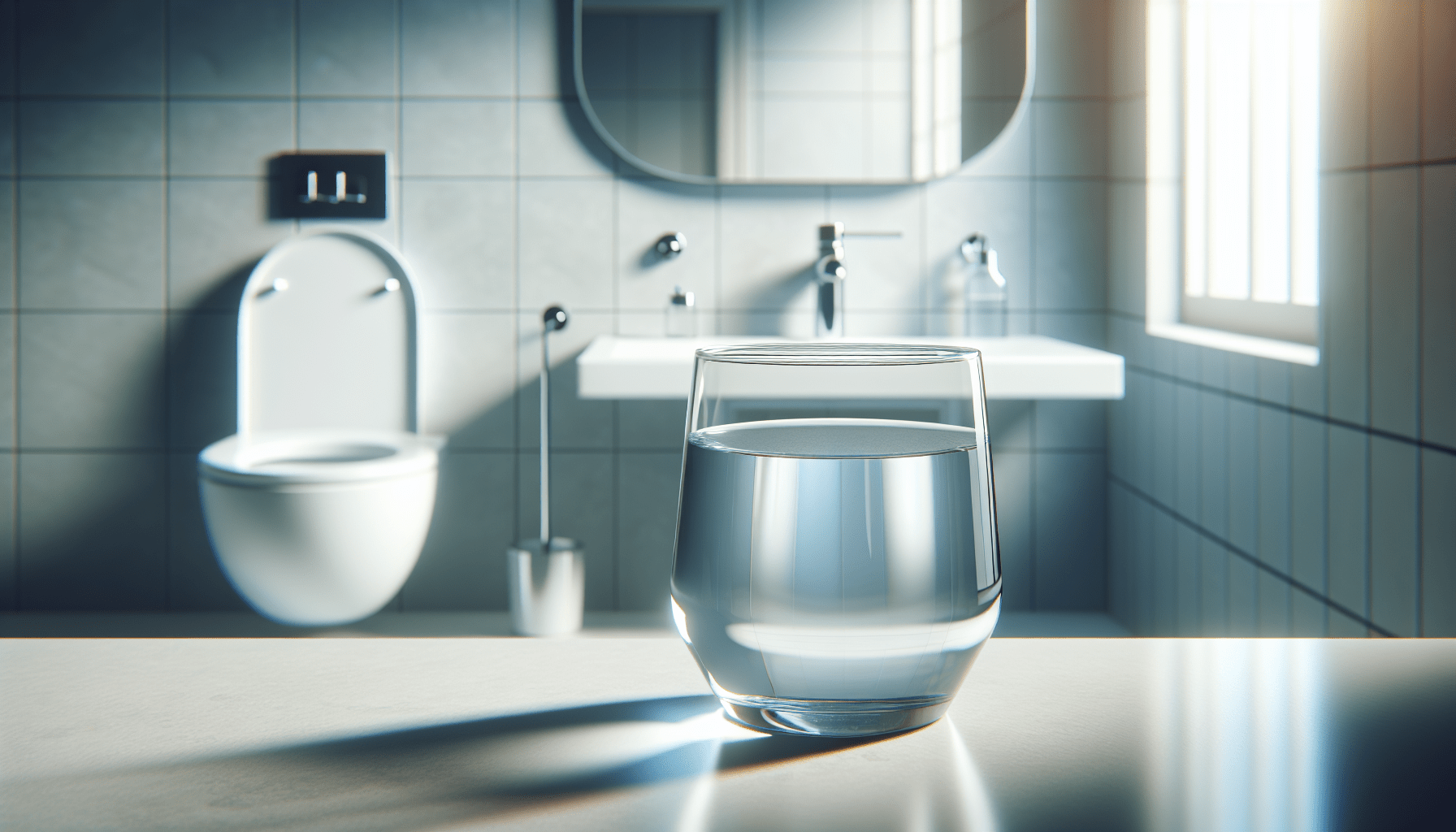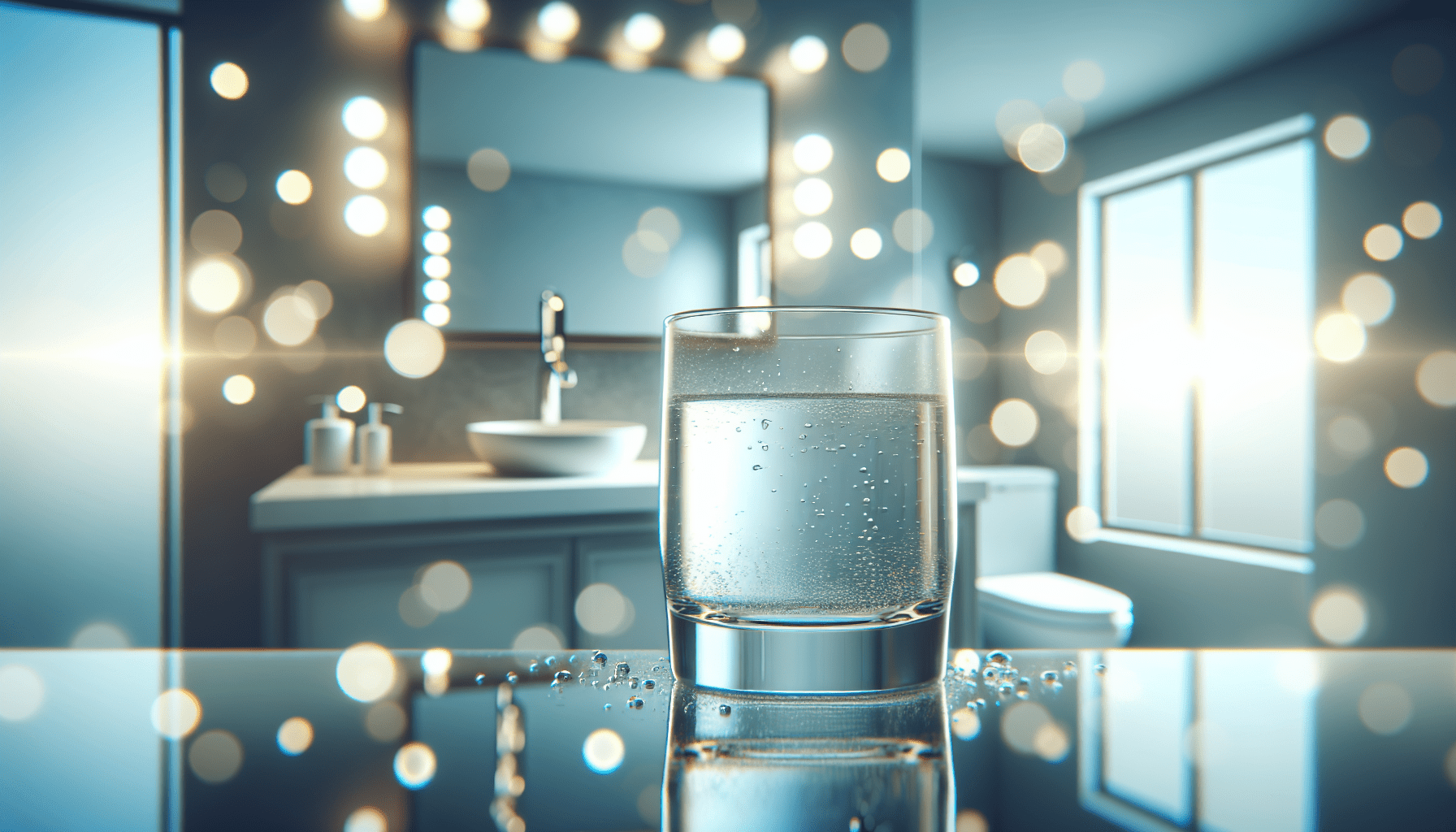Have you ever wondered if drinking more water could actually help with bladder control? It’s a question that many people, especially those approaching their later years, ponder at some point. Maintaining good bladder health is crucial, not only for comfort but also for overall well-being. Bladder control issues can be both frustrating and stressful, but understanding your body’s needs and the role of hydration can make a big difference.

The Importance of Hydration
Staying hydrated is important for virtually every bodily function. Drinking water helps regulate your temperature, keeps your skin supple, and aids digestion, among many other benefits. Proper hydration can also have an impact on your bladder health.
How Water Affects Your Bladder
Your bladder stores urine until it is ready to be expelled from your body. Urine is composed mainly of waste products filtered out by your kidneys, mixed with water. When you don’t drink enough water, your urine becomes more concentrated. This concentration can irritate the bladder lining, leading to symptoms like urgency and discomfort.
Conversely, drinking an adequate amount of water can dilute these waste products, making it less likely for them to irritate the bladder. This could result in fewer trips to the bathroom and less discomfort overall.
Common Misconceptions About Water and Bladder Control
Many people think drinking more water will lead to more frequent urination and worsen bladder control issues. While it’s true that you’ll likely need to urinate more if you’re properly hydrated, it’s not necessarily a bad thing. In fact, staying hydrated can help your bladder function more efficiently, potentially reducing instances of bladder leakage in the long run.
Restoring Normal Bladder Control as You Age
Aging can bring about changes in bladder function. Muscles weaken, tissues lose elasticity, and other health conditions can impact bladder health. While this can be disheartening, there are several steps you can take to restore or maintain normal bladder control.
Pelvic Floor Exercises
Pelvic floor exercises, often known as Kegels, can strengthen the muscles that control urination. These exercises are simple and can be done nearly anywhere. Consistency is key, and you may need to exercise for a few months before you notice significant improvements.
Medication and Medical Treatments
In some cases, medications can help manage bladder control issues. Anticholinergics, for example, can reduce bladder spasms, while alpha-blockers can help relax bladder neck muscles. Consult with your healthcare provider to determine the best medical treatment for your specific situation.
Lifestyle Modifications
Certain lifestyle changes can help improve bladder control. Reducing or eliminating caffeine, alcohol, and spicy foods can make a difference. These substances can irritate the bladder and exacerbate symptoms. Maintaining a healthy weight through diet and exercise can also alleviate pressure on the bladder.
Bladder Control Supplements
Supplements formulated to improve bladder control can be beneficial, especially when combined with other interventions like exercise and lifestyle changes. Some of the most effective ingredients found in these supplements include:
| Supplement Ingredient | Benefits |
|---|---|
| Pumpkin Seed Extract | Known for its ability to support urinary health and strengthen bladder function |
| Saw Palmetto | Often used to support prostate health and can alleviate bladder symptoms |
| Magnesium | Helps with proper muscle function, including the muscles that control the bladder |
| Horsetail Herb | Acts as a diuretic, helping to flush out the bladder and potentially reduce symptoms of overactive bladder |
Choosing the Right Supplement
With so many bladder control supplements on the market, it can be overwhelming to choose the right one. Look for products that have clinically proven ingredients, and check user reviews to gauge effectiveness. It’s also wise to consult your healthcare provider to make sure the supplement won’t interfere with any other medications you’re taking.
Natural Remedies
In addition to commercial supplements, some natural remedies can also help with bladder control. Drinking herbal teas, such as chamomile or corn silk tea, can have a soothing effect on the bladder. Eating a diet rich in fruits and vegetables can also support overall urinary health.
The Role of Hydration in Managing Bladder Leakage
Bladder leakage can be a sensitive issue, but understanding how hydration impacts it can be a game changer. Many people with bladder leakage limit their fluid intake in an effort to control their symptoms. However, this can make the problem worse by concentrating urine and irritating the bladder.
Benefits of Drinking More Water
- Dilution of Irritants: Drinking more water helps dilute the irritants that can cause bladder spasms and urgency.
- Enhanced Kidney Function: Proper hydration supports the kidneys in flushing out toxins more effectively.
- Balanced Electrolytes: Adequate water consumption helps maintain balanced electrolytes, which are essential for muscle function, including bladder muscles.
How to Hydrate Properly
To maintain proper hydration without aggravating bladder symptoms, follow these tips:
- Spread Out Your Intake: Instead of drinking large amounts of water at once, sip water throughout the day.
- Set a Schedule: Try to drink a glass of water every couple of hours. This routine can help you maintain a consistent intake.
- Limit Before Bedtime: Reduce your water intake in the hours leading up to bedtime to decrease the likelihood of nighttime bathroom trips.

Myths and Facts About Water and Bladder Control
When it comes to bladder health and hydration, myths abound. Here are some common misconceptions and the facts that dispel them.
| Myth | Fact |
|---|---|
| Drinking less water will solve bladder leakage | This can worsen symptoms by concentrating urine, irritating the bladder more |
| All fluids are equal | Water is the best fluid for hydration; sugary and caffeinated beverages can irritate the bladder |
| Frequent urination means you are drinking too much | It often indicates healthy kidney and bladder function if you’re drinking an appropriate amount of water for your size and activity level. |
When to Seek Professional Help
Bladder control issues can significantly impact your quality of life. If you’ve tried at-home remedies, lifestyle changes, and supplements without success, it may be time to consult a healthcare provider.
What to Expect from a Consultation
Your healthcare provider will likely conduct a thorough examination, which may include:
- Medical History: Understanding your overall health and any underlying conditions.
- Physical Examination: Checking the pelvic region and possibly conducting a neurological exam.
- Tests: Urine tests, bladder function tests, or imaging may be recommended.
Potential Treatments
- Bladder Training: This involves scheduled bathroom visits and controlling the urge to urinate.
- Medications: For those with overactive bladder or other specific issues, medications may help manage symptoms.
- Surgical Interventions: In severe cases, surgical options may be necessary to repair or support bladder function.
Practical Tips for Day-to-Day Bladder Management
Taking proactive steps can help you manage bladder health effectively. Here are some practical tips:
Monitor Your Diet
Certain foods and drinks can irritate your bladder. Consider keeping a food diary to identify potential triggers. Common bladder irritants include:
- Caffeine: Found in coffee, tea, and some sodas
- Spicy Foods: Can cause bladder irritation
- Acidic Foods: Tomatoes and citrus fruits can be problematic
- Artificial Sweeteners: Found in diet drinks and sugar-free products
Maintain a Bathroom Routine
Try to establish a consistent schedule for bathroom breaks. Waiting too long to urinate can put extra pressure on your bladder muscles and increase leakage risk.
Wear the Right Clothing
Tight clothing, especially around your midsection, can put additional pressure on your bladder. Opt for loose, comfortable clothing whenever possible.
Stay Physically Active
Regular physical activity can help maintain a healthy weight, improve mood, and boost overall health, all of which are beneficial for bladder control. Exercises targeting the pelvic floor can be particularly helpful.
Conclusion
So, does drinking more water help with bladder control? The answer is generally yes. Proper hydration can dilute irritants in the urine, support overall kidney and bladder function, and even reduce symptoms of bladder irritation. However, it’s essential to drink water in appropriate amounts and be mindful of other factors like diet, exercise, and potential medical treatments.
By integrating a well-rounded approach that includes adequate hydration, pelvic floor exercises, lifestyle modifications, and possibly supplements, you can take significant strides in improving your bladder control. Always consult with a healthcare provider to tailor any interventions to your specific needs, ensuring that the methods you choose are both safe and effective.
Addressing bladder control issues may seem daunting, but with the right strategies in place, you can regain confidence and comfort in your daily life. Remember, it’s all about balance and understanding how different aspects of your lifestyle interact with your body’s needs. So, go ahead and grab that glass of water—you might be surprised at the positive changes it brings!





